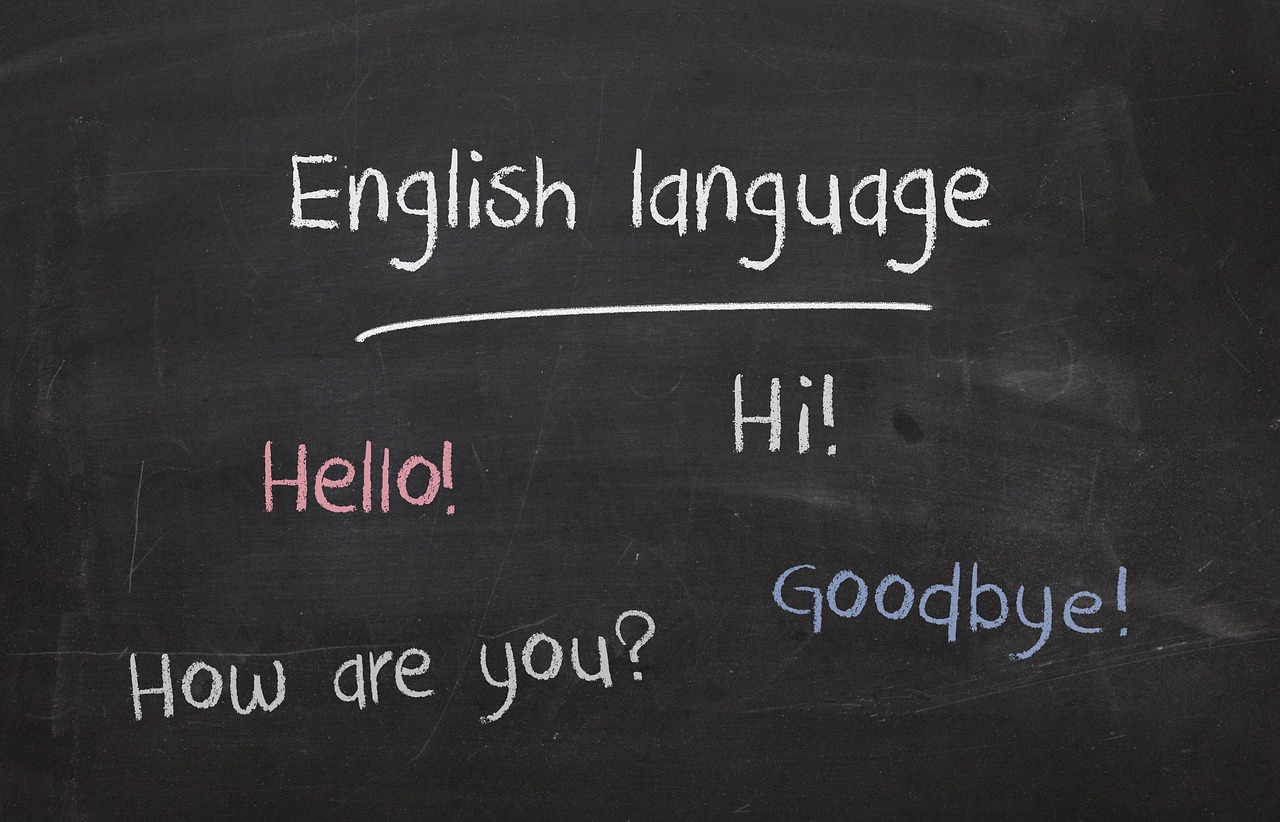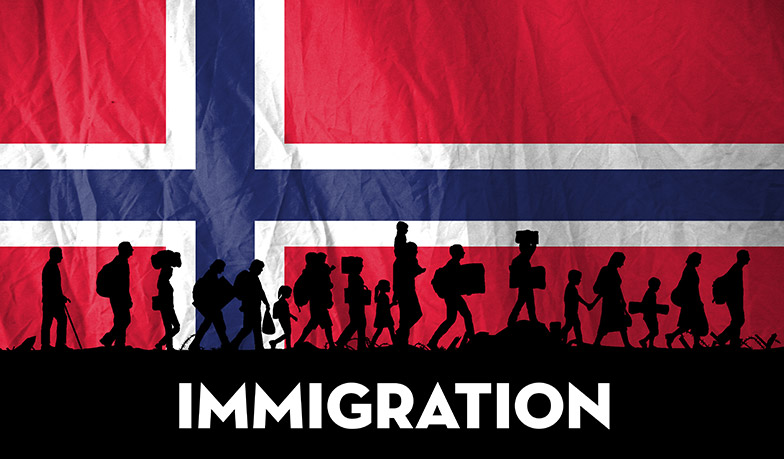
The story of one American’s attempt and failure to make a life in Norway.
By the time I moved to Norway, it was at the end of more than four years of planning, saving up money, and adapting plans to changing circumstances.
While my original plan didn’t necessarily pan out, nor did my second, and I’m not sure what happened to the third plan, but finally, the route I ended up taking was what I had always dreamed of doing.
Background
For as long as I could remember I’d wanted to live in Europe. I didn’t have any particular destination picked out until I discovered the mountains, fjords, and cities (and beautiful blonde girls) of Norway.
I ended up in Norway for the first time when I attended a folkehøgskole at the behest of one of my best friends at the time – a Norwegian exchange student I had met while I was in high school. I went the typical route for most Americans and stepped right into college after high school. Turns out it wasn’t really for me – not at the time anyway.
My friend told me about Folkehøgskole and, long story short, I applied and they let me join for some reason! It ended up being one of the best years of my life; I made great friends, had incredible experiences and gained a pretty good grasp of the Norwegian language
While attending FHS I discovered I have a penchant for blondes, one blonde in particular. I fell in love with a Norwegian girl, which just added another tally to the list of reasons why I wanted to move to Norway.
Back to the U.S. and with a goal in mind I dove straight into school, going fall, spring, and summer semesters to get it done as quickly as possible and get my ass across the Atlantic. My original plan was to study English, with an emphasis on teaching English as a second language, then entering into a master’s programme for something similar in Norway along with obtaining teaching certificate over there.
Turns out I don’t much like kids and crushing through a bachelor’s degree in less than three years made me feel pretty fatigued with the whole school thing. So I weighed my options and mapped out a route I could take to finally live in Norway. Less than two weeks after I graduated I was on a plane to Norway.
The Norwegian immigration process
The process of applying for visas in Norway seems to have a pretty mixed bag of reviews. For me, the process was pretty straightforward and relatively easy when it came to dealing with UDI.
All visa types come with an easy to follow checklist of the materials you need to hand over to the Norwegian government, but for the applicant, this means paperwork a lot of paperwork – especially for anyone coming from outside of the EU/EEA.
This paperwork not only requires time and patience but a great deal of research and effort on the part of the applicant. After researching all my options time and time again, the requirements still ended up changing on several occasions before I got over to Norway – and even once in the handful of days I was there before I handed in my application.
With the applications, you set a date for a meeting to drop off all of your paperwork at either a police station or the special immigration centres if there is one in your city or municipality.
Overall I thought there would be more human interaction in terms of the applications. Everything was done online or by sending in your paperwork at the predetermined centres. I kind of thought they would want to meet with you, interview a bit maybe, but nope, the application does all the talking for you.
The ‘skilled job seeker' visa
My first step in starting life in Norway was to apply for the skilled job seeker visa. This visa is applicable for just about anyone with a degree from a university or more than a few years experience in a skilled trade.
This visa gives you six months to find a job in Norway. Generally, this is a great option for people who are completing Masters or Ph.D. studies in Norway and want to try to find a job in the country after their studies.
This visa also comes with a hefty monetary component. Besides the costs of applying for the visa it is necessary to demonstrate to the Norwegian government that you can afford to live in their country for the six months you’re there on the job hunt – which to them means have upwards of 120.000 Norwegian kroner in your bank account to be granted the visa. Hence the years of saving I did before making the move.
This visa requires that you find a job you are qualified for based on your education and/or work history. So no easy bar or restaurant jobs if you’re from outside the EU for most people.
Skilled job seeker visa: Expectations v reality
To be honest, I was completely terrified. I didn’t think I had much of a chance at finding employment that would fulfil the visa requirements. It kept me up at night for months before I even got on the plane for Norway.
With only six months to find gainful employment, I had to hit the ground running. I reached out to as many ex-pats as I could to ask for meetings and advice, and made a strict schedule for myself that I followed every day for applying to jobs, reaching out to companies, and dropping off my CV pretty much anywhere with an unlocked door.
Turns out my fears were pretty much spot on; a degree in English Writing isn’t in hot demand in Norway. It is possible that I might have had better luck in a bigger city like Oslo, but where I was I had limited options.

Being from outside of the EU/EEA is the real disadvantage, and the fact that I was a fresh-faced kid straight out of college with basically no professional experience didn’t help either.
Self-employed work permit
After six months of a few interviews, friendly meetings, gallons and gallons of coffee, but little luck I went with my backup plan: the Selvstendig næringsdrivende visum, or self-employed person visa.
Turns out the self-employed person visa is one of the most difficult visas to get, according to numerous people that had nothing to do with UDI told me.
The application did require an insane amount of paperwork. From a full business plan and budget to a copy of my University diploma and even a transcript showing the courses I took and the grades I received, amongst a whole host of other required items.
Luckily for me the business I planned on running, being a freelance writer, had essentially no overhead costs, inventory, or anything like that that would have required a lot more work to put together for the application This visa gives the applicant one year to run their business and meet a set pre-tax minimum income of NOK 240.000.
Self-employed work permit: Expectation v reality
I thought the services of a native English writer would be of some interest in Norway. While most Norwegians speak and can write well enough in English, it’s generally pretty easy to tell when someone with English as a second language is writing for a companies website, product, or what have you. I certainly wasn’t expecting to get rich but thought with enough tenacity I could make a living.
The thriving start-up scene in the city I resided in seemed like a perfect place to hone my focus and enjoy my work doing a bunch of different writing. There were also a number of other larger companies, and even a football team, that I thought could use my skills.
I’ve never been much of a salesman, especially when it comes to trying to self-promote as a contractor and convince people that my skills are worth paying a not so paltry sum for.
Read more: The complete guide to moving to Norway
Beyond that, for a kid straight out of college, trying to start a business in a foreign country was incredibly tough. Figuring out how to pay taxes in another country, even dealing with the differences in professional and business expectations of another culture were all things that took time.
Don’t even get me started on trying to accomplish anything in Norway during July. Half the time I’d need to go grocery shopping during the summer I’d walk down the block only to find the doors locked and the lights off, some saint’s day or other that I wasn’t used to or prepared for.
The majority of my first year turned into more of a networking strategy as opposed to gaining clients. Some small jobs trickled in here and there, but I hardly made any money the first year. I was told that UDI would be pretty lenient on the first year of the business in regards to the income requirements, so I focused on making myself known in the business world in the hopes that these connections could turn into clients, or help me in finding clients, later on down the road.
My strategy paid off, kind of. The end of that first calendar year and the first few months of the next gave me some real hope. I had a couple of permanent basis clients that I did work for every month and had several short-term projects lined up with other companies.
I’d made more money in a month than I did in the previous year. Going into the renewal for my visa I thought this would show promise in my company and it would be easy to renew for another year.
The renewal process
That first year in Norway flew by. Before I knew it I was getting bank statements and all the other paperwork together to renew my self-employment work permit.
Renewing a visa is slightly simpler than the initial application. It required a lot of the same stuff used in the original application, just adding in a few things like invoices and bank statements to show your earnings, and writing a letter about your business expectations for the next year.
Based on what I’d heard from other people and online, I thought that UDI would be fairly lenient in regards to the monetary requirements of renewing the visa. Especially as I had proof that the coming year would be immensely more successful. So I went in nervous, but still with some hope.
Denied
Nobody likes rejection, even more so when it happens to be in regards to a visa and where you’re going to be living. When I got the letter from the UDI, I think I hid it behind some groceries and let it sit on my kitchen counter for a few days before I had the courage to open it.

The reason for the denial was that I didn’t reach the full income that was necessary for the first year, even though I was well on my way to making that number and showing great progress at the start of year number two.
I wasn’t happy with the decision, obviously. So I went through my options on what I could do to stay and get another chance. I could leave right away, or I could try and appeal the decision at the immigration court.
Appealing the decision
With just about any visa you have the right to appeal a UDI decision. You do this by taking all the same paperwork you had for the initial application and then add a letter stating why you think the decision should be reversed.
In some cases, you can be asked to go in to speak with someone in person but for the most part its just another application process essentially.
I spent several days writing one of the most heartfelt and difficult pieces of writing I’ve ever had to do. Basically, I was begging UDI to let me stay in Norway. I even had a Norwegian friend help me write the letter in Norwegian and provided copies in both English and Norwegian to the court.
I was proud of that letter and really thought my words would have the desired effect of getting the government to give me another year in the country.
Tough luck
Well, shit. I’m sitting in my office one day and I receive a phone call. After I few years in the country, I did the Norwegian by letting the call go to voicemail and then searching up the number that called me on the internet.
Let me tell you all, it’s not a great feeling to have that number pop up as the local municipality’s police department. My heart dropped down to the floor.
I waited a few minutes, walked around the office a few times before I called the number back saying that I received a call from this number. The lady on the other end of the line sounded cheerful, I thought maybe everything would be ok.
Then she changed to short and direct.
“Your visa was denied. You have three weeks to leave the country. Send us a copy of your plane ticket.”




Hi Bradley,
It will be interesting you tell us about the differences you have seen between Norway and your home place. Of course Colorado can not be representative of the whole USA but it can give us an idea. Could you write an article on that? You can compare the Health System, Education System, Welfare System, Taxes, Culture for different categories of the population (e.g., poor and middle class)
If it makes you feel any better as a Norwegian living in the US with a 100k a year salary and permanent position. I also got denied a visa and green card. I have no moved back to Norway and it sure is cold than I remembered.
You won’t believe how heartless they are. I had a full time job which meets the minimum required salary by UDI (at that time, 34000 nok per month). When the second year came to renew, my employer didn’t know that the minimum salary was slightly increased by the government. I hand in all papers, and then I get a rejection, and it turns out, the the salary I was getting was only 400 nok ($50) less than the minimum. My boss wouldn’t mind to pay this as it is a very small amount, but I expected UDI at least to call me before rejection as it is a really tiny amount, but instead, I was asked to leave the country in 3 weeks. I appealed with the new contract, and had to wait 2 months before I was allowed to work again finally. So if they rejected me for 400 nok only, I can totally understand how they must have treated you. I am very sorry and wish you all the best.
So sorry to hear this! I’m also struggling to integrate professionally (& socially!) here despite being a self employed person with my own income (British) it seems literally impossible to move my company to Norway. It is definitely not a country that encourages entrepreneurial types, especially foreign ones. As you’ll see in all the cities, independent & unique businesses and shops are very few and far between. I’m still awaiting approval for a Norwegian drivers license, my application for a Norwegian bank account was denied because my income comes from outside of Norway (international freelancer). Though I managed to register a company here I’m not sure how they expect me to file a tax return via an English bank. damn I just want to pay tax here so I can access healthcare & apply for a mortgage with my partner (I can’t renew my EHIC card from Norway until I’m contributing either)
Your girlfriend could always try to settle with you in America. To be honest I find Norway is very closed off & it looks after it’s own: I’ve been living here 4 years (unofficially, as I travel in & out of the country with work a lot I haven’t had to obtain an extended visa) but I dread having to deal with UDI. You jump through every hoop possible and they make it so difficult.
I would advise any self-employed EU / British nationals to avoid Norway. The main issue is the difference between living in Norway “for tax purposes” and where you actually live. Norway will refuse you permission to live in Norway but insist you live there for tax purposes. You cease to be habitually resident anywhere with predictable results for your credit rating, ability to apply for travel visas, access to banking and insurance services. I could go on but, in a nutshell, there’s a high chance you will will end up destitute and, as NAV Skandalen revealed, the “fundamental rights” you might have as a Brit or EEA national cannot be enforced. NAV Skandalen pretty much shows the EU is a bad idea. What has the EU been doing regarding ensuring EEA nations uphold the EEA Agreement protecting EU nationals’ fundamental rights? Nothing … except new “initiatives” , “reports” , “conferences” … it was all better under the bilateral treaties pre 1994.
Penchant for blondes? What the heck does that have to do with the article? Ain’t there blondes in the US? Or are we just perpetuating another dreamland stereotype of scandinavian women that does not represent the majority of women there? Get real, break out of your bubble. Most of them ain’t blond.
So you’re one of those people? He was stating he fell for a blond girl in particular, one that lives in Norway. Or are you so cold hearted in your hatred for something that you find POSSIBLY racist to grasp love?
I agree, most Norweigen women I saw had brown hair. Its a stupid statement about Norway’s women and men. What is true, is Norway is a clean country with no one living on the street like Canada and USA. Thanks to British petroleum facist,we spend billions of tax papers money to attack Canadians to support countries who buy British oil.
Nothing is impossible with God. Don’t give up on your dream. . . .
First thing I said to my husband day one of our trip Bergen “Why is everybody blonde?” I’ve lived in Los Angeles (US blonde Mecca) my whole life, we have no where near that many blondes👩🏼👨🏼👱🏻♀️🧔🏼
This is a load of rubbish. Bergen is known for having more dark haired people.
I have been to LA, and your bottle-blondes are outnumbered by “others”. I get wanting to contribute to the web traffic, but at least try bringing honesty?
Sorry your visa got denied. If you love your girlfriend this much, you can always propose. You can also try applying as a cohabitant, since you have lived together for two years. The rules are a bit more lax in that regard. There are lots of other shortcuts you can take (which I will not list here). You can try reaching out to Marit Ursin at NTNU.
Good luck!
@Bradley
If you are married or registered cohabitants (the latter is something that you should’ve done early, if you were in fact cohabitants) would let you get a family immigration visa, *if* your girlfriend’s income is above a certain level. Somewhere around 350k IIRC. From then on the next step would only be to, after three years (during which you re-apply and verify the requirements for continued temporary residency), apply for permanent residency as soon as you have 12 months with income (by any means – salary, stock payouts, interest, whatever) above 82% of governmental salary stage 19 – a bit over 242k in 2019.
As for the bureaucracy – they simply follow the rules to the letter. If you pass, you pass, if you fail, you fail. They don’t have room for being lenient or in other ways evaluate each applicant. So it’s terribly important to make sure that everything is correct. My wife is foreign and I check the updates on regulations many times a year, to make sure that there’s not something new tripping us up.
Hi Bradley
If you have one parent (or at least 2 grandparents) of European (EU) birth, it should be possible – but it’s very clunky – to apply for a European passport. If your parents (or grandparents) are still alive, you can track their date and exact places of birth. You’ll then have to obtain birth certificates and other evidence that they lived, if you don’t already have this documentation. Whether they are alive or dead, you’ll have a heap of paperwork to deal with. Your parents/grandparents embassy or consulate may be able to help you with your search, or at least point you in the right direction.
With an EU passport in your hand, the process of living and taking out residency in a EU country is a lot simpler, although all of these countries require you satisfy the conditions that apply to them, especially if you wish to live there long term or permanently. However, you don’t need apply for a visa or any type of EU work permit once you have the EU passport – although you will, of course, have to compete with locals for whatever jobs are available in your chosen field. All EU countries require you register with their social services. Unless and until you register, you probably won’t be able to open a bank account or apply for a driving license. This also applies to Iceland, Norway, Switzerland and Liechtenstein, which have agreements with the EU.
Some countries such as Germany (and Britain, soon to leave the EU) have large numbers of immigrants, and are well accustomed to people who do not have German (or English) as their first language. Other EU counties, especially in the former communist East Europe, have almost no experience with foreigners wanting to work there, and have very few facilities in place to help them integrate into society. Some northern countries, especially Scandinavia (as you have discovered), give immigrants a hard time with bureaucracy. Several southern European countries such as Greece, Italy and Spain have thriving black economies, where you won’t pay any tax, and the authorities turn a blind eye to this as it keeps prices down. However, you will have no protections, such as unemployment or medical benefits, should you need them, and strictly speaking the black economy is illegal. If you get sick or lose your job, it is not unknown for the taxman to come after you for the income tax you should have been paying!
If you have, let’s say, German ancestry (1 parent and/or 2 grandparents) and you found suitable work in Germany for a year, it is then comparatively easy to go to work in Norway, provided there is a proven demand for your skills in Norway. I’m Irish, and have worked in Ireland, Britain, Spain, Germany and Norway over the years (I’ve even qualified for small pensions from Britain and Norway!)
Good luck, Bradley
WOW You are an american and they did that to you :” ! What are they gonna do to me if they knew i’m an egyptian who is thinking about going there ! Fk my life man :””””D AAAAAAA sorry for your unfortunate luck ,but glad ur story made me open an eye that this shit is hard AF so i’mma drop learning Norwegian bcs apparently i won’t need it
As the NAV Skandalen has illustrated, paying trygdeavgift does not entitle you to any benefits in Norway.
It’s a breach of human rights but Norway ignores the ECtHR so you can do nothing. Google “gaygusuz vs Austria”
I would advise you don’t work in Norway and stay no longer than three months and only as a tourist
You run the risk of being declared resident for tax purposes in Norway but denied permission to live there as happened to me. EU citizens’ time in Norway should be governed by EU/EEA laws but Norway ignores those rules and the EU tolerates it
Really, it’s not worth it …. then, if you’re still tempted, google “barnevernet”.
I have a girlfriend who wanted to join me in Norway and relocate her businesses here. I talked her out of it.
This is really sad but it’s not the end of it! I understand it completely since I’m in the same situation as you but in Germany.
I don’t get why you didn’t start in Oslo in the first place? Small cities might be cheaper but if you can’t find a job there, especially as a foreigner, then it can really mess up with your goal.
Luckily, it seems like you’re in your early 20’s so you still have enough time to do anything you want, and you really shouldn’t give up your dream! It might take a bit longer but you can do it.
I’m an Israeli (and Russian) citizen who wants to stay in the EU, my dream is to live in Amsterdam but the Dutch immigration laws are quite difficult so I had to move to Germany because it’s a lot easier and it’s close enough.
Basically, what I always tell people who want to move to Europe, is to check what kind of unique agreements their governments have with other countries. so, for example, work holiday visas, this is what kept me in Germany. Also, as a freelancer, there is an agreement between the US and the Netherlands so that could be an option too.
The thing is, even though the EU isn’t 1 country in terms of immigration like the US, it’s still possible to live in one country and then after a few years be able to move to another. It’s not the end of the world if you start in another country and then move, everything here is a cheap few hours Ryanair flight away so you can always visit and even maintain a long-distance relationship that could potentially even get you a family reunion visa when the time comes (by love ofc).
Also, schools, language visas, and many more can get you there, maybe you can live in Sweden for a while and after a few years get a permit and move to Norway.
Most important thing is to do your homework, know your rights, and be patient. Immigration, especially alone without any support in that country is incredibly difficult. But those who really want and are willing to make sacrifices will succeed. good luck 🙂
Please write another post or your future endeavors!
As I understand, you don’t have desirable qualifications or professional experience that enabled you to get a job. You don’t have the finances to support yourself but you seem to believe that you can move to a country of choice because.. it is your right? Or your .. Dream.. or God’s will! If you were from Nigeria, India or any other non white privileged country, would the readers be so sympathetic to your cause? Just get some decent qualifications and experience, make yourself worthy and don’t expect hand outs.
Did you read the article? He wrote: “I’d made more money in a month than I did in the previous year. Going into the renewal for my visa I thought this would show promise in my company and it would be easy to renew for another year.”
My thoughts exactly…
If it was easy to come here, it wouldn’t take long before the system, social welfare, would brake down and it wouldn’t be a place where you would like to stay.
It’s worth pointing out the nations change status as the UK has done with Brexit. You can try and settle in a nation and your rights change after you got there due to a vote back home.
My advice?
Stay where you’re from
It’s far less complicated
If you must leave a nation, go somewhere warm. Becoming destitute in Norway will kill you and paying into Norway’s national insurance scheme is mandatory even if you can’t be a member of it or receive any benefits or healthcare.
Take a cruise there but
a. never work there … ever
b. never stay more than three months a year
c. never open a bank account there
d. never buy a house in Norway
Go and enjoy the place as a tourist but make sure you leave
Hi Perry. How did you get to this page in the first place? Don’t tell me you wanted to ruin YOUR own day. Then why? Just curious…
I found it by searching the internet for “”human rights””residence permit””tax purposes””norway””